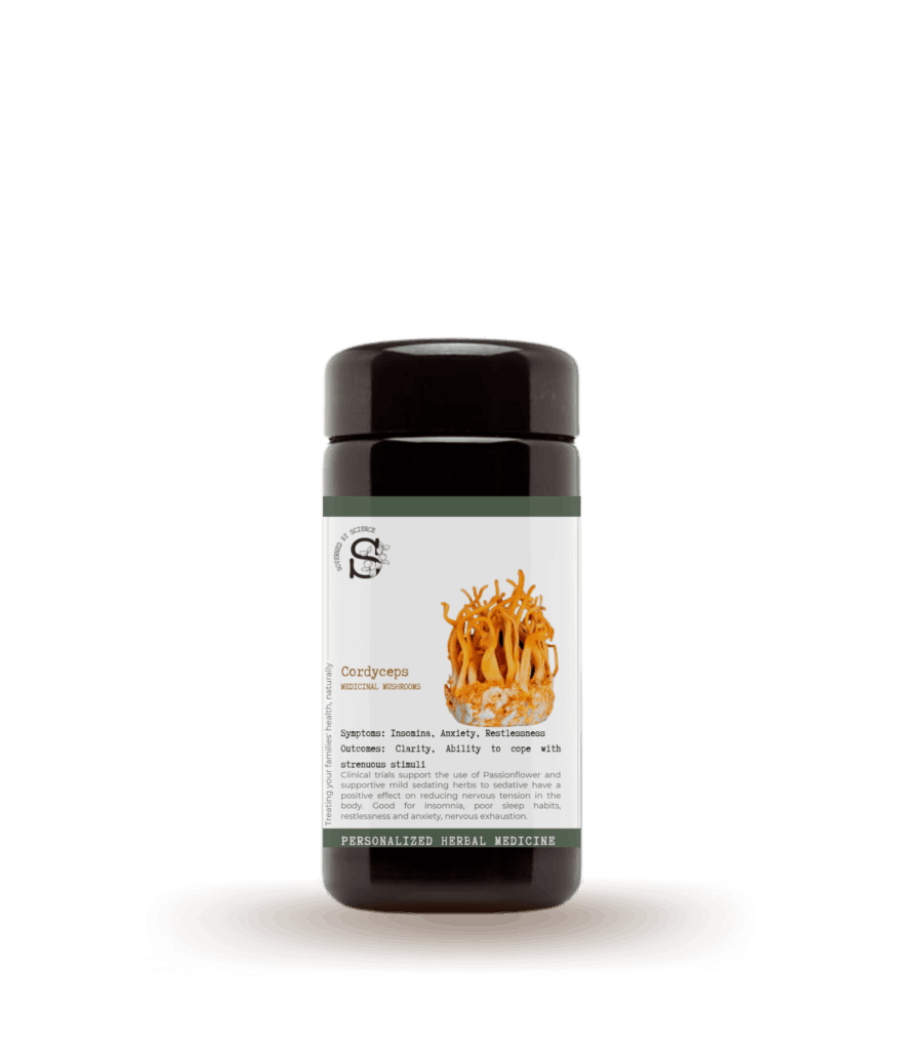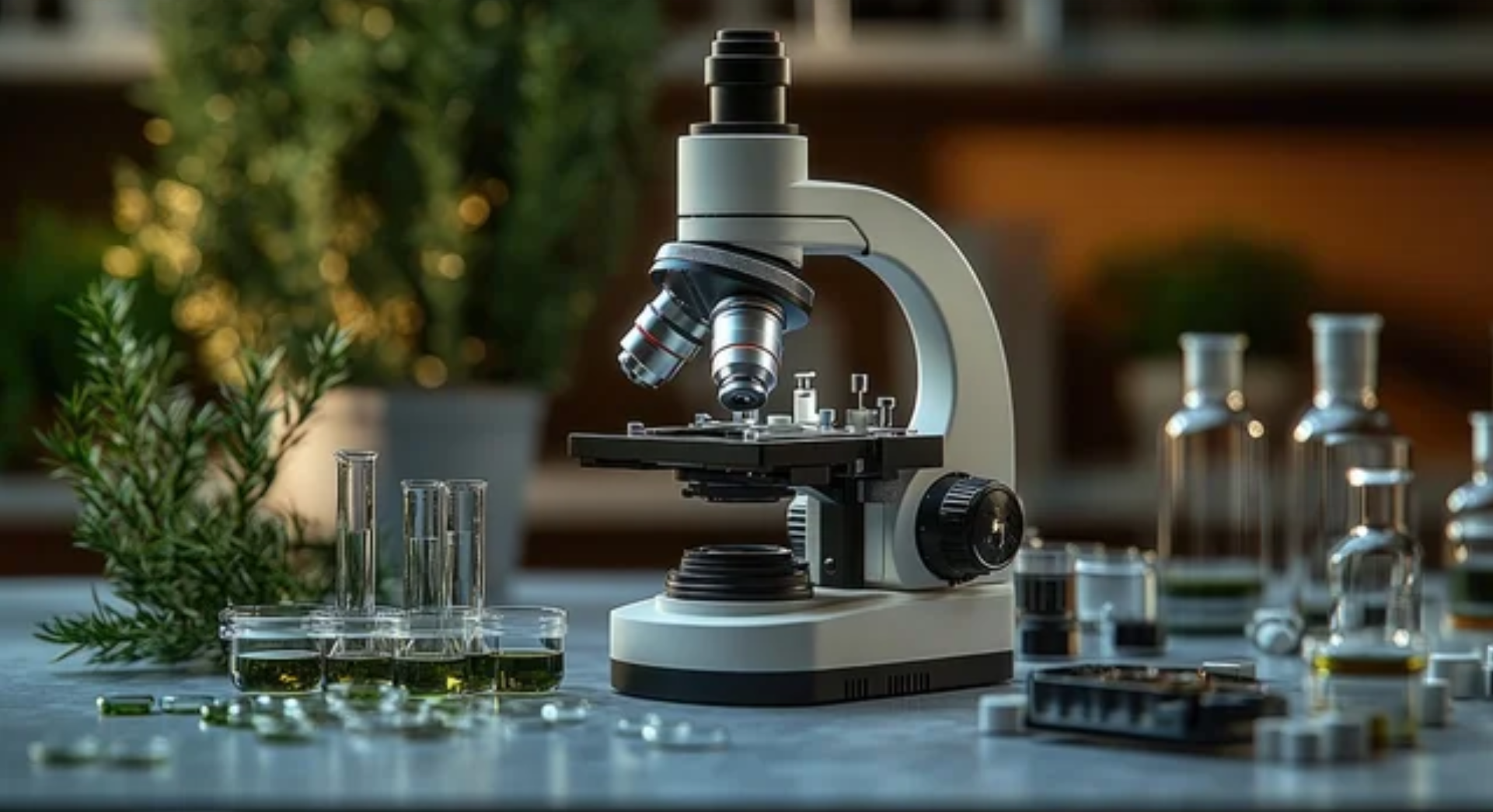Feeling overwhelmed? Take a breather and dive into our Stress Wellbeing Quiz.
Escape the chaos and discover your path to feeling lighter and brighter in no time!

Medicinal mushrooms are edible fungi and have a long history of use, both as foods and a medicines. Traditionally used in Asia, mushrooms are associated with health-supporting properties that are increasingly recognized and studied. Their use dates back thousands of years and spans multiple cultures. In Ancient Egypt, mushrooms were regarded as plants for immortality, given to the people by the god Osiris and, in Roman times, they were considered luxuries reserved for the rulers[1].
The study of the use of extracts obtained from mushrooms is known as “mycotherapy”, and is gaining increasing popularity around the world.
Mushroom extracts can be derived from either the fruiting body or mycelium. The fruiting body is the fleshy part of the mushroom that grows above ground, while the mycelium is the feeding membrane that grows underground or within the host plant, and acts as a root system.
Medicinal mushrooms have a broad spectrum of pharmacological activities that benefit human health. Studies show mushrooms have antiallergic, anti-inflammatory, antioxidant, immunomodulating and liver-protecting abilities[2].
Mushrooms are rich in proteins, vitamins, minerals and dietary fibre, but their health benefits are mainly attributed to their polysaccharides content. The most abundant polysaccharides present in mushrooms are α-glucan and β-glucan, which are primarily responsible for immune advantages. These glucans can bind to specific cells in the body and stimulate specific immune responses[3].
Aside from immunomodulating ability, mushrooms have apoptogenic potential, supporting the stress response, and can exert antifatigue effects by improving liver function and blood circulation and regulating blood glucose[4].

Different species of mushrooms have different properties and benefits, however, when taken together they can have a synergistic action. Some of the most well recognised and studied mushrooms include:
| Lion’s mane – Hericium erinaceus | Lion’s mane takes its name from its white, shaggy appearance that resembles a lion’s mane and possesses antioxidant activity, frequently used to support cognitive health. |
| Cordyceps - Cordyceps sinensis | Believe it or not, Cordyceps is a fungus that lives on certain caterpillars in the high mountainous regions of China and is well-known for its beneficial effects on immunity and lung health. |
| Shiitake – Lentinula edodes | Shiitake mushrooms are brown-capped mushrooms, known for their marked effect on the immune system. |
| Turkey tail – Coriolus versicolor | Turkey tail has been used in China for thousands of years and is still widely used today to promote good health, strength and longevity. |
| Reishi – Ganoderma lucidum | Reishi is known as the “mushroom of immortality” and is one of the most widely used medicinal mushrooms in the world today. |
| Snow fungus – Tremella fuciformis | Known for its unusual yet striking white sponge-like appearance, Snow fungus has immunostimulatory activity and a protective effect on nerve cells. |

Mushrooms are often recommended for their beneficial effects on brain health and mood.
One particular mushroom that has shown promising results in both regards is Lion’s mane. It contains different bioactive components, including polysaccharides, erinacines and hericenones, that can cross the blood-brain barrier and directly benefit brain health.
In one study, 800mg of Lion’s mane significantly improved cognitive function over 12 weeks in healthy adults[5].
In another study, Lion’s mane given for eight weeks reduced anxiety, improved mood and led to better quality sleep[6].
There are thousands of species of mushrooms in the world, but only relatively few have researched health benefits and are readily available. As some species of mushrooms are poisonous, their use is strictly controlled.
Medicinal mushrooms, including Lion’s mane, Cordyceps, Turkey tail, Reishi and Tremella, are available to purchase in Australia as foods. Some are also suitable for use in Listed Medicines available over the counter. You can purchase high-quality mushroom products from most health food stores and online health retailers.
Who are medicinal mushrooms suitable for?
Everyone! Medicinal mushrooms have a great safety profile, making them a great option for supporting health in adults and children.
Mushrooms are generally safe to take with other supplements and medicines. However, we don’t generally advise taking mushrooms with immunosuppressive medications, as the mushrooms may decrease the effectiveness of the medications.
We also recommend caution with some mushrooms (Lion’s mane) as there is a theoretical concern it may increase the risk of bleeding when used with anticoagulant and antiplatelet medicines. Due to potential blood-thinning activity, we recommend discontinuing mushrooms at least one week before surgery.
If you are pregnant or breastfeeding, we recommend talking to your health professional before taking mushrooms.

Generally speaking, mushrooms are very well tolerated. Occasional gastrointestinal discomfort, nausea, changes in bowel habits or skin rash may occur in some very sensitive individuals. In addition, rare reports of dizziness, dry mouth and itching exist for Reishi. It is important to follow the directions for use to ensure the safe use of mushroom products and reduce the risk of side effects.
Take Away
Given the vast array of health benefits offered by these compounds, medicinal mushrooms are deservedly the centre of growing attention, with new research sparking renewed interest in their wide-ranging health benefits.

[1] Kotowski, M. A. (2019). History of mushroom consumption and its impact on traditional view on mycobiota–an example from Poland. Microbial Biosystems, 4(3), 1-13.
[2] Venturella, G., Ferraro, V., Cirlincione, F., & Gargano, M. L. (2021). Medicinal mushrooms: bioactive compounds, use, and clinical trials. International Journal of Molecular Sciences, 22(2), 634.
[3] Venturella, G., Ferraro, V., Cirlincione, F., & Gargano, M. L. (2021). Medicinal mushrooms: bioactive compounds, use, and clinical trials. International Journal of Molecular Sciences, 22(2), 634.
[4] Geng, P., Siu, K. C., Wang, Z., & Wu, J. Y. (2017). Antifatigue functions and mechanisms of edible and medicinal mushrooms. BioMed Research International, 2017.
[5] Saitsu, Y., Nishide, A., Kikushima, K., Shimizu, K., & Ohnuki, K. (2019). Improvement of cognitive functions by oral intake of Hericium erinaceus. Biomedical Research, 40(4), 125-131.
[6] Vigna, L., Morelli, F., Agnelli, G. M., Napolitano, F., Ratto, D., Occhinegro, A., ... & Rossi, P. (2019). Hericium erinaceus improves mood and sleep disorders in patients affected by overweight or obesity: could circulating pro-BDNF and BDNF be potential biomarkers?. Evidence-Based Complementary and Alternative Medicine, 2019.
This blog provides general information and discussions about health and related subjects. The information and other content provided in this blog, or in any linked materials, are not intended and should not be construed as medical advice, nor is the information a substitute for professional medical expertise or treatment.
If you or any other person has a medical concern, you should consult with your health care provider or seek other professional medical treatment. Never disregard professional medical advice or delay in seeking it because of something that have read on this blog or in any linked materials. If you think you may have a medical emergency, call your doctor or emergency services immediately.
